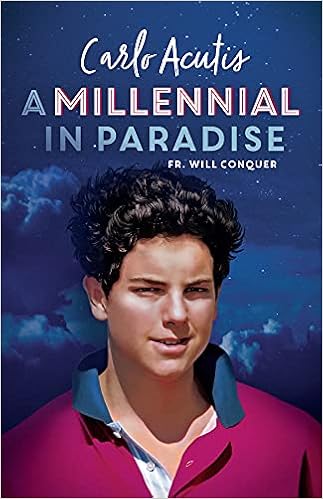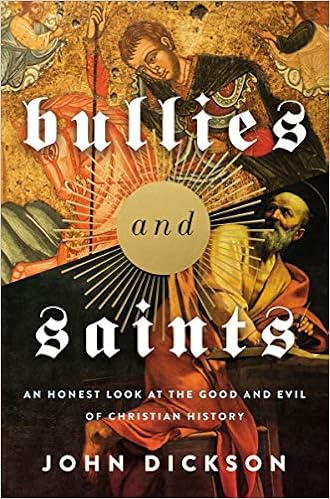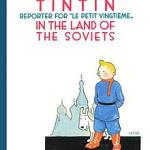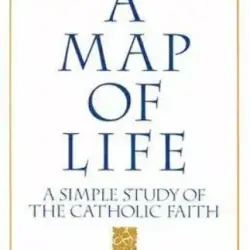Book Em, Dano on your reading list
Catholic Books
Descriptions are taken from Amazon or Goodreads unless otherwise noted.
Most of the books have been released within the last month of June with a few exceptions to the rule.
Awake, Not Woke: A Christian Response to the Cult of Progressive Ideology by Noelle Mering
While it is easy to dismiss wokeness as being a movement on the fringe or “out there,” to do so would be short sighted. We are called to engage with the world in which we find ourselves. To write off a growing phenomenon which is both affecting and reflecting real persons is to shirk that duty of engagement. Charity demands that we make a real effort to understand, rather than just hold in contempt, the people falling prey to this ideology. People are looking for meaning in their lives and answers to human questions such as why are we here and how ought we to live. If we aren’t providing these answers in a compelling way, they won’t remain unanswered; they will be answered in distorted half-truths that promise, but cannot deliver, real solutions.
Priest and Beggar: The Heroic Life of Venerable Aloysius Schwartz Paperback – June 7, 2021 by Kevin Wells (Author)
Schwartz—or Father Al, as everyone called him—formed the Sisters of Mary in 1964 in the war-scorched Korean Peninsula, with a mission to nourish the souls of the humiliated and neglected. He tended to the poor, to orphans, to lepers, to outcasts and all others on the margins. He built hospitals, schools, sanatoriums, homeless centers, houses for the disabled and for unwed mothers. The work eventually expanded to the Philippines in the 1980s. When he opened the doors to the Mexican poor in 1991, his body was fading away in the grip of amyotrophic lateral sclerosis (ALS), Lou Gehrig’s disease. To Father Al, this suffering was no accident. “Our role is to mingle our blood with the blood of Christ”, he once said, “and to shed our blood with that of Christ to the poor. . . The way we serve is to have a constant crown of thorns.”
The Wisdom of the Word by Michael Dauphinais and Matthew Levering
In this book, we propose that Catholic faith has a strong basis for its claims—and that a central way to discover this is through the Bible, as canonized in the Church, proclaimed in the liturgy, professed in the Creeds, and embodied in the lives of the saints. We invite Catholics who are thinking about leaving the Church, or who are confused about elements of Catholic faith and practice, to pause and give the Bible a chance to illuminate the most challenging questions that the Church faces today.
A Millennial in Paradise: Carlo Acutis by Will Conquer (Author)
Carlo Acutis could be the first millennial to become a saint.4 Thus, he would be the first twenty-first century adolescent to be offered to us as a model by the Church, the first young person of the third millennium to be cited by a pope, and the first saint to be recognized by the Church in a context that it is common to us. He grew up in the Europe that we know — a peaceful Europe that we can freely travel in. He would be the first saint to enter Heaven with a cellphone in his hand, to have used a computer, sent emails, done research on Google, and found answers to his questions there. From the time he was a child until he was fifteen years old, he was confronted by the same problems we have personally encountered. Through the research that I have done to write this spiritual biography, I have really been touched by him. Carlo is one of my direct contemporaries. We have experienced the same historical events and shared a number of common challenges in our relationship with God and others. His life has opened my eyes to many chapters of my adolescence that I would prefer to leave in the unexamined drawers of my past. He has reconciled me with it. By immersing yourself, in turn, in his life, you will notice how much he looks like us more and more.

Jesus, the Master Psychologist: Listen to Him by Dr. Ray Guarendi
“Experts” of any sort — scientists, physicians, psychologists — often know little to nothing about God or His Son. Expertise in their field, they think, brings expertise in religion. “I’m smart here, so I must be smart over there, too.” Their professional knowledge may be at graduate school, but their religious knowledge is still in preschool. On the other hand, those who seek to know what they can about God don’t naturally assume they therefore have expertise in, say, biology or astronomy. Yet those well-versed in biology or astronomy often assume themselves to be well-versed about God. The saying fits them well: “None hold an opinion so strongly as the uninformed.” “Advanced” education makes so many people question Jesus, the Bible, religion, and church. The illogical leap is, “I have questions; therefore, faith is questionable.” To quote St. John Cardinal Newman, a brilliant and high-profile Catholic convert of the nineteenth century, “Ten thousand difficulties do not make one doubt.”3 Meaning, questions don’t have to nurture skepticism; they can instead nurture answers.

Eternal Heart: The Mystical Path to a Joyful Life (2021) by Carl McColman
Spiritual life thrives when we see things from new angles and perspectives, when we open up to make connections we didn’t notice before, when we imagine new possibilities and potentialities. And then we not only see these hidden possibilities, but by the grace of God they can help us make choices and commitments that generate blessings for all.
Tip infinity on its side and it looks like the number eight. Eight is hardly infinite; truly it’s an unassuming number. Everyone loves three (“third time is the charm”), seven gets to boast about being the number of chakras or sacraments, and nine gets repeated ad nauseam on the worst song the Beatles ever recorded. But poor eight, its only claim to fame is that it equals two cubed (2 × 2 × 2). And yet hidden in this most humble of numbers is the symbol of infinity itself. But you have to look at it sideways to see the possibility that a new perspective brings.

Bullies and Saints: An Honest Look at the Good and Evil of Christian History by John Dickson
I suppose when your tradition popped up in the sixteenth century it is tempting to disown all the bad stuff between Jesus and Martin Luther. But that does not work for me. Not only have Protestants in their brief five-hundred-year history participated in all the same bigotry, hatred, and violence of their Catholic counterparts, this convenient line of reasoning leaves Protestantism in the strange position of having to admit that it has made almost no contribution to the historical fabric of western civilization, since all of the hospitals, charities, educational institutions, and distinctively Christian ethics of Protestantism are largely a continuation of traditions that thrived in Catholicism and Orthodoxy for the one thousand, five hundred years before.
I have used the expressions “the west” and “western civilization”. Let me make clear that this is not code for “white civilization” or for any contemporary longing for the recovery of a “Judeo-Christian society” of the past. I understand the recent worries about the way these terms have been co-opted for a conservative agenda. Yet, in history circles, it is just a given—irrefutably so—that much of the laws, ethics, philosophy, literature, and culture of the countries of Europe, Britain, Ireland, the United States, South America, Canada, South Africa, Australia, and New Zealand can be traced to concrete precedents—good and bad—in the Greco-Roman and Jewish-Christian societies that spread westward from Italy in the fourth to the sixteenth centuries. This is what I mean by “the west” and “western civilization.”

FICTION BOOKS
Out now and includes my “The Terror On The Gridiron”, in which H.P. Lovecraft’s Reanimator patches up a battered Miskatonic U quarterback in time for the big game against Harvard..-R.C. Mulhare
Rabbits: A Novel by Terry Miles | Jun 8, 2021
It’s an average work day. You’ve been wrapped up in a task, and you check the clock when you come up for air—4:44 p.m. You check your email, and 44 unread messages have built up. With a shock, you realize the date is April 4—4/4. And when you get in your car to drive home, your odometer reads 44,444.
Coincidence? Or have you just seen the edge of a rabbit hole?
Rabbits is a mysterious alternate reality game so vast it uses the entire world as its canvas.
Since the game started in 1959, ten iterations have appeared and nine winners have been declared. The identities of these winners are unknown.
So is their reward, which is whispered to be NSA or CIA recruitment, vast wealth, immortality, or perhaps even the key to the secrets of the universe itself.
But the deeper you get, the more dangerous the game becomes. Players have died in the past—and the body count is rising.
And now the eleventh round is about to begin.
Enter K—a Rabbits obsessive who has been trying to find a way into the game for years. That path opens when K is approached by billionaire Alan Scarpio, rumored to be the winner of the sixth iteration. Scarpio says that something has gone wrong with the game and that K needs to fix it before Eleven starts, or the whole world will pay the price.
Five days later, Scarpio is declared missing.
Two weeks after that, K blows the deadline: Eleven begins.
And suddenly, the fate of the entire universe is at stake.
The Maidens Alex MichaelidesEdward Fosca is a murderer. Of this Mariana is certain. But Fosca is untouchable. A handsome and charismatic Greek tragedy professor at Cambridge University, Fosca is adored by staff and students alike—particularly by the members of a secret society of female students known as The Maidens.
Mariana Andros is a brilliant but troubled group therapist who becomes fixated on The Maidens when one member, a friend of Mariana’s niece Zoe, is found murdered in Cambridge.
Mariana, who was once herself a student at the university, quickly suspects that behind the idyllic beauty of the spires and turrets, and beneath the ancient traditions, lies something sinister. And she becomes convinced that, despite his alibi, Edward Fosca is guilty of the murder. But why would the professor target one of his students? And why does he keep returning to the rites of Persephone, the maiden, and her journey to the underworld?
When another body is found, Mariana’s obsession with proving Fosca’s guilt spirals out of control, threatening to destroy her credibility as well as her closest relationships. But Mariana is determined to stop this killer, even if it costs her everything—including her own life.
Questland: Author of the Philip K. Dick Award-winning Bannerless by Carrie Vaughn | Jun 22, 2021
YOU FIND YOURSELF IN A MAZE FULL OF TWISTY PASSAGES…
Literature professor Dr. Addie Cox is living a happy, if sheltered, life in her ivory tower when Harris Lang, the famously eccentric billionaire tech genius, offers her an unusual job. He wants her to guide a mercenary strike team sent to infiltrate his island retreat off the northwest coast of the United States. Addie is puzzled by her role on the mission until she understands what Lang has built: Insula Mirabilis, an isolated resort where tourists will one day pay big bucks for a convincing, high-tech-powered fantasy-world experience, complete with dragons, unicorns, and, yes, magic.
Unfortunately, one of the island’s employees has gone rogue and activated an invisible force shield that has cut off all outside communication. A Coast Guard cutter attempting to pass through the shield has been destroyed. Suspicion rests on Dominic Brand, the project’s head designer— and Addie Cox’s ex-boyfriend. Lang has tasked Addie and the mercenary team with taking back control of the island at any cost.
But Addie is wrestling demons of her own—and not the fantastical kind. Now, she must navigate the deadly traps of Insula Mira
A PSALM FOR THE WILD-BUILT BY BECKY CHAMBERS
It’s been centuries since the robots of Panga gained self-awareness and laid down their tools; centuries since they wandered, en masse, into the wilderness, never to be seen again; centuries since they faded into myth and urban legend.
One day, the life of a tea monk is upended by the arrival of a robot, there to honor the old promise of checking in. The robot cannot go back until the question of “what do people need?” is answered.
But the answer to that question depends on who you ask, and how.
They’re going to need to ask it a lot.
Becky Chambers’s new series asks: in a world where people have what they want, does having more matter?
The Doors of Eden (2020) by Adrian Tchaikovsky
Lee’s best friend went missing on Bodmin Moor, four years ago. She and Mal were chasing rumours of monsters when they found something all too real. Now Mal is back, but where has she been, and who is she working for?
When government physicist Kay Amal Khan is attacked, the security services investigate. This leads MI5’s Julian Sabreur deep into terrifying new territory, where he clashes with mysterious agents of an unknown power who may or may not be human. And Julian’s only clue is some grainy footage – showing a woman who supposedly died on Bodmin Moor.
Khan’s extradimensional research was purely theoretical, until she found cracks between our world and countless others. Parallel Earths where monsters live. These cracks are getting wider every day, so who knows what might creep through? Or what will happen when those walls finally come crashing down.
We Are Satellites by Sarah Pinsker
Val and Julie just want what’s best for their kids, David and Sophie. So when teenage son David comes home one day asking for a Pilot, a new brain implant to help with school, they reluctantly agree. This is the future, after all.
Soon, Julie feels mounting pressure at work to get a Pilot to keep pace with her colleagues, leaving Val and Sophie part of the shrinking minority of people without the device.
Before long, the implications are clear, for the family and society: get a Pilot or get left behind. With government subsidies and no downside, why would anyone refuse? And how do you stop a technology once it’s everywhere? Those are the questions Sophie and her anti-Pilot movement rise up to answer, even if it puts them up against the Pilot’s powerful manufacturer and pits Sophie against the people she loves most.
Non-Fiction Books
The Ride of Her Life: The True Story of a Woman, Her Horse, and Their Last-Chance Journey Across America byElizabeth Letts
HER NICKNAME WAS JACKASS ANNIE.
In November 1954, Annie took her dog and got on a horse and started riding. Destination: California. From a modern perspective, her journey seems almost bewildering—imagine trying to navigate without the benefit of GPS, to travel with no cellphone, no credit or debit card, not even a bank account to draw from. In fact, when she first set off, Annie didn’t even have the kinds of tools that were available in 1954: road maps, a flashlight and batteries, a waterproof raincoat. Annie headed south, a Quixote in the company of her Rocinante, a run-down ex-racehorse, and her Sancho Panza, a little mutt. Society has called these people by different names: vagabonds and drifters, pilgrims, hoboes, and hippies. She called herself a tramp.
An Atlas of Extinct Countries by Gideon Defoe
Countries die. Sometimes it’s murder. Sometimes it’s an accident. Sometimes it’s because they were too ludicrous to exist in the first place. Every so often they explode violently. A few slip away unnoticed. Often the cause of death is either “got too greedy” or “Napoleon turned up.” Now and then they just hold a referendum and vote themselves out of existence. These are the obituaries of the nations that fell off the map. The polite way of writing an obituary is: dwell on the good bits, gloss over the embarrassing stuff. A book about dead nations can’t really do that, because it’s impossible to skip the embarrassing stuff—there’s far too much of it. The life stories of the sadly deceased involve a catalogue of chancers, racists, racist chancers, conmen, madmen, people trying to get out of paying taxes, mistakes, lies, stupid schemes and a lot of things that you’d file under the umbrella term of “general idiocy.” Because of this—and because treating nation states with too much reverence is maybe the entire problem with pretty much everything—these accounts do not respectfully add to all the earnest flag-saluting in the world, however nice some of the flags are.
The Reason for the Darkness of the Night: Edgar Allan Poe and the Forging of American Science by John Tresch
At the start of February 1848, New York newspapers announced a mysterious impending event: “Edgar A. Poe will lecture at the Society Library on Thursday evening … Subject, ‘The Universe.’” There could be no grander topic. But no one could say just what to expect: a story, a poem, a critical diatribe? It might contain anything and everything.
Would Poe’s lecture be a story, a poem, a scientific treatise, or some unheralded novelty? The Weekly Universe remarked, “Mr. Poe is not merely a man of science—not merely a poet—not merely a man of letters. He is all combined; and perhaps he is something more.”
The Icepick Surgeon: Murder, Fraud, Sabotage, Piracy, and Other Dastardly Deeds Perpetrated in the Name of Science (July 13, 2021) by Sam Kean
Science is a force for good in the world—at least usually. But sometimes, when obsession gets the better of scientists, they twist a noble pursuit into something sinister. Under this spell, knowledge isn’t everything, it’s the only thing—no matter the cost. Bestselling author Sam Kean tells the true story of what happens when unfettered ambition pushes otherwise rational men and women to cross the line in the name of science, trampling ethical boundaries and often committing crimes in the process.
The Icepick Surgeon masterfully guides the reader across two thousand years of history, beginning with Cleopatra’s dark deeds in ancient Egypt. The book reveals the origins of much of modern science in the transatlantic slave trade of the 1700s, as well as Thomas Edison’s mercenary support of the electric chair and the warped logic of the spies who infiltrated the Manhattan Project. But the sins of science aren’t all safely buried in the past. Many of them, Kean reminds us, still affect us today. We can draw direct lines from the medical abuses of Tuskegee and Nazi Germany to current vaccine hesitancy, and connect icepick lobotomies from the 1950s to the contemporary failings of mental-health care. Kean even takes us into the future, when advanced computers and genetic engineering could unleash whole new ways to do one another wrong.
Unflinching, and exhilarating to the last page, The Icepick Surgeon fuses the drama of scientific discovery with the illicit thrill of a true-crime tale. With his trademark wit and precision, Kean shows that, while science has done more good than harm in the world, rogue scientists do exist, and when we sacrifice morals for progress, we often end up with neither.
Sprinting Through No Man’s Land: Endurance, Tragedy, and Rebirth in the 1919 Tour de France by Adin Dobkin
Lefèvre suggested a cycling race longer than anyone before had considered, one spanning France’s entire border. “A Tour de France,” Desgrange clarified. The Tour had existed as part of French life even if it had never been a cycling race. Kings went on tour to inspect their more distant lands, to let those with tenuous allegiances know that they remembered them; craftsmen left their hometowns for tours to learn how others in regions not their own built cathedrals, baked pastries. Le Tour de la France par deux enfants, a book French children read in primary school, described two children’s journey around their country to find their uncle. A Tour de France race on bikes had never been considered, but it could be imagined. It was enough for Desgrange to not dismiss Lefèvre’s idea immediately. The editor took the journalist to a café after the meeting and discussed the proposed race further. The pair decided Desgrange would bring the idea to l’Auto’s business director and cofounder, Victor Goddet, for his input. If Goddet thought it impossible, that was easy enough: the idea wouldn’t go any farther. When Desgrange went to him, however, Goddet thought it was just what l’Auto needed.
Why Peacocks?: An Unlikely Search for Meaning in the World’s Most Magnificent Bird by Sean Flynn
The reason to have a peacock, I would have thought, is self-evident. When you suddenly, and without any relevant experience or hint of prior interest, come into possession of one, it is understandable that people would be curious as to why. Yet they present the question in a way that suggests they genuinely cannot see what should be plainly obvious. I’m sure it was from exasperation that George Mallory finally said he was climbing Mount Everest simply because it was there. So: because of feathers. That is the reason. And colors. Because a peacock is a wondrously improbable apparition, ethereal, an avian experiment strayed from a misty place where pretty things are whispered about before being made fully real. Because looking at one makes you happy. Because Keats was right about truth and beauty. Also because, in this particular instance, anyway: Elvis, too. And because the first gifts you give the woman you’ve already decided you want to marry are freighted with enormously high stakes, some, even, that you can’t possibly recognize until many years have passed and then one afternoon there are peacocks in the yard.
The Nine: The True Story of a Band of Women Who Survived the Worst of Nazi Germany by Gwen Strauss
Collectively, Hélène, Zaza, Nicole, and Lon tell a story of friendship, incredible bravery, and survival. Their accounts differ in some details but converge at key points. There are large missing pieces; I will never know if they are willful omissions or lapses in memory. At the start, I knew eight of the nine women only by their nicknames: besides Christine (my great-aunt Hélène), they were Zaza, Lon, Guigui, Zinka, Josée, Mena, Nicole, and Jacky. They were all political prisoners. I would later learn that Hélène’s father was Jewish and that Nicole came from a Jewish family, though neither woman talked about being Jewish nor, probably, identified as such. And if they did, they kept it hidden from the Germans. As bad as it was to be a prisoner in the concentration camps, it was much worse to be a Jewish prisoner.


![Awake, Not Woke: A Christian Response to the Cult of Progressive Ideology by [Noelle Mering]](https://m.media-amazon.com/images/I/41HIeeJrdgS.jpg)

![Strangely Funny VIII by [Sarah Glenn, DJ Tyrer, Kay Hanifen, R.C. Mulhare, Edward Lodi, Kevin A. Davis, Paul Wartenberg, Judith Field, Luke Foster, Erin Lee]](https://m.media-amazon.com/images/I/41xC2uWQXqS.jpg)
![Rabbits: A Novel by [Terry Miles]](https://m.media-amazon.com/images/I/517sF2gORIL.jpg)

![Questland: Author of the Philip K. Dick Award-winning Bannerless by [Carrie Vaughn]](https://m.media-amazon.com/images/I/41Zj-Gc+WxL.jpg)
:no_upscale()/cdn.vox-cdn.com/uploads/chorus_asset/file/22510836/91KMGe_yLfL.jpg)





![The Icepick Surgeon: Murder, Fraud, Sabotage, Piracy, and Other Dastardly Deeds Perpetrated in the Name of Science by [Sam Kean]](https://m.media-amazon.com/images/I/51v6hRfR3oS.jpg)

















